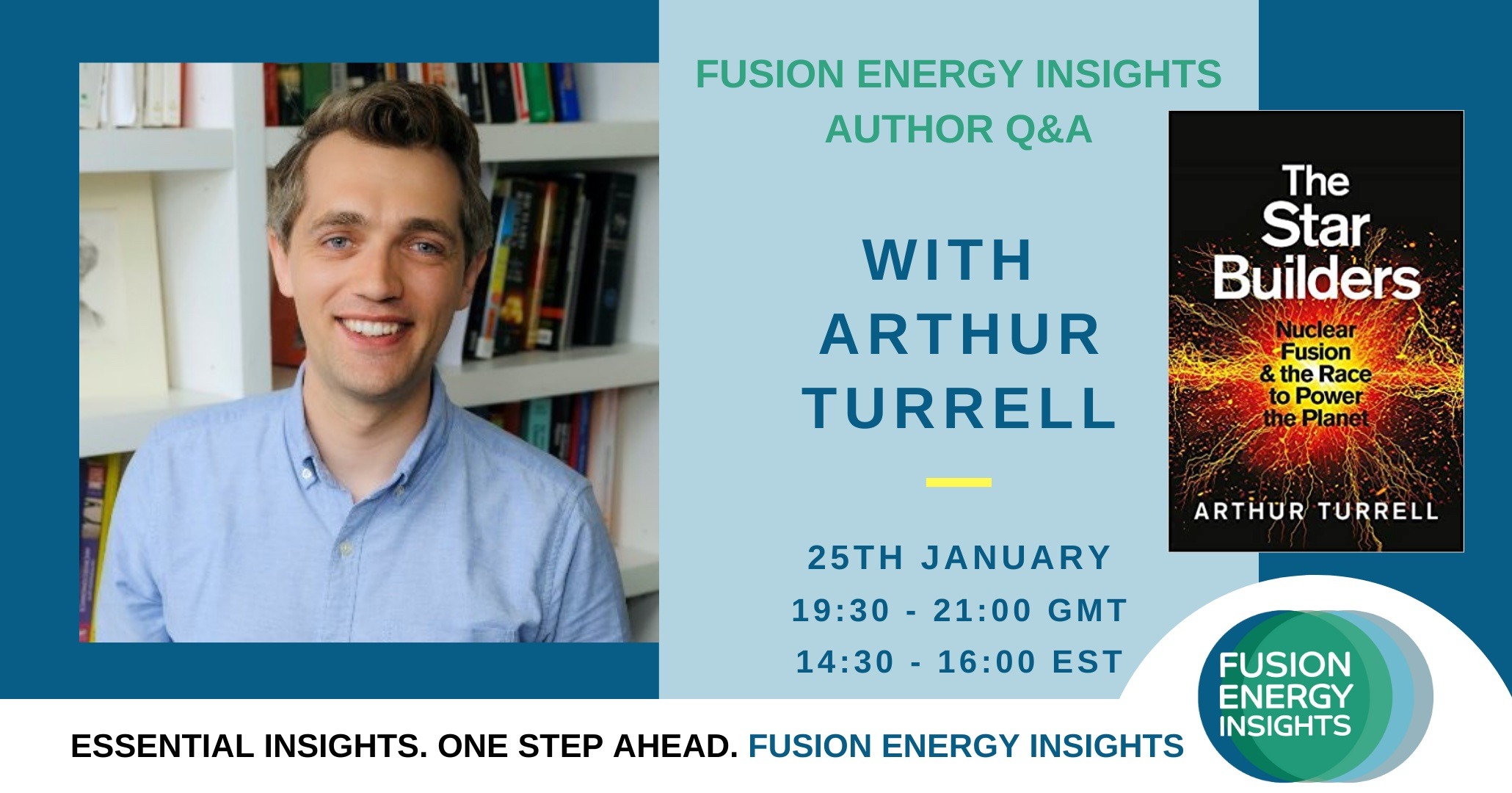Fusion from a physics and economics perspective
Our January bonus Q&A event was with Arthur Turrell, Deputy Director of the Data Science Campus at the Office for National Statistics, PhD in Plasma Physics and author of The Star Builders.
We discussed fusion energy from a physics and economics viewpoint, the process of writing the book, how to evaluate fusion energy companies, and much more!

Here are 3 insights from the event:
1. Economics and physics are different lenses through which we can see the world
“I think of both economics and physics as lenses through which we can see the world.
“The physics lens shows you what's physically possible—so the nuclear reactions, the devices and how likely they are to succeed, what key physical laws are behind getting to energy gain or indeed not.
“The economics lens is different. It's not really about money. It's about people, actually, and it's about incentives and behaviours. Why do people do things? Using the economic lens, I was able to think about what's driven human progress over the last 250 years. What can likely continue that in the future? It helped me understand that we shouldn't necessarily be trying to reduce our energy consumption, because it's led to such developments in our standard of living, which, of course, is another thing that economists are obsessed with.”
2. Fusion promises to be a real complement to the other energy sources we have available
“Coming to this as an economist, from the demand side the outlook for fusion is very good, because the need for energy isn't going anywhere. We're going to have more people, we're going to have more average energy use, even if people in very developed nations turn down their energy use per capita a little bit.
“So what about the supply side? Can fusion deliver?
“There have been some big, promising breakthroughs that have taken us closer to at least a first demonstration of the principle of fusion. There's a bit of a gap between going from that and then doing it repeatedly and reliably, which is what power companies need. But what I've seen in the past year, the advances on the technology side on the scientific side, and the advances in terms of the investment and the societal will—those make me optimistic about the future on the supply side as well.”
3. Learn lessons from other industries that have successfully scaled up after a break through
“It seems to be the case that the more modular and smaller you can make a technology, the easier it is to learn how to make it cheaper. And people have learned that lesson with microchips—Moore's law is a famous example of that. Also solar panels, where the price has come down a huge amount, and actually with a whole range of technologies. The easier it is to produce them, the quicker the costs fall and the better the learning rates.
“So what does that mean for fusion? Well, we probably need to think about fusion schemes that can be miniaturised, as much as possible. Those of you who keep an eye on energy will know that this has been one of the problems with nuclear fission power plants. They're quite big, monolithic structures. They've got huge capital costs and often it's only governments who are willing to take on some of the risk for those huge capital costs. But if you can make a reactor smaller….
"Think about something like a lawnmower. No one complains about the risk from building a lawnmower, because it's such a small thing. You don't need very much money to do it. And it works just by itself. Now, for physics reasons, it's very unlikely you're going to make a fusion reactor that's as small as a lawnmower, but the more you can make it small and repeatable and reliable, the easier it's going to be and the cheaper it's going to be to scale out.”
You can find out more about Arthur and his book The Star Builders on his website, and you can listen to a recent talk about the book that Arthur gave for the Royal Institution.
A full pdf summary of key insights, plus the Q&A event replay, is available to Game Changer members of Fusion Energy Insights. Join us now for full access to all the insights.
